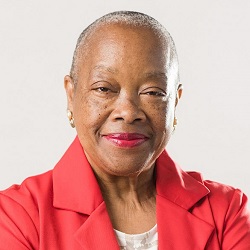Commentary on Genesis 28:10-19a
Growing up in a spiritually animated culture in Central Alabama, I know something about “thin places,” where humans encounter divine or strange beings not of this world. I grew up with ghost stories, “haints,” stories of God showing up in strange ways, visitations from dead relatives, and more. I know that I am not unusual in this world filled with stories of strange encounters. And, if I am honest, I have had my own unexplainable encounters in these thin places. Perhaps preachers can start with the personal or corporate memories of their own or their listening community to help them bring this story of Jacob’s dream at Bethel close. The Negro Spiritual, “We are Climbing Jacob’s Ladder,” is not about the biblical story, but instead about the enslaved or formerly enslaved peoples mixing this imagery with their understanding of their relationship with Jesus as “soldiers of the cross.” I mention the difference so that the preacher will be careful and not assume that this song will help them, unless they take care to make connections regarding Jesus as an ancestral encounter in the thin place, somewhere that Jacob’s ladder appeared.
Last week, the lectionary text was about Jacob extracting the birthright from his brother for a pot of stew. This week, Jacob’s dreamscape leads him into a liminal encounter with the God of his ancestors, who introduces himself (sic) as such, in other words, the God of Abraham and Isaac. He hears the same kind of promise that God made to Abraham in Genesis 12:4-5 (see also Genesis 28:13), when God appeared to him and promised him land and progeny. In other words, the promise continues into the next generation with this encounter.
- What might the preacher say about the ongoing presence of God in the life of God’s people, and the way that God keeps covenant, through our individual and corporate wrongs?
- Is there a word about God showing up with and how we least expect God?
- How could Jacob have expected an encounter with the Divine, when he was running for his life?
The dream and the encounter changes his life, or at least changes his perception of his life. God had always intended this covenant. Jacob just became aware of it. Might the preacher ask her listeners: “Are there dreams or encounters or signs along the way that need to be renamed as ‘gate to heaven’ or ‘house of God,’ in other words, places or experiences that point to God’s intention for our lives, corporately and individually?” This story is likely meant to be etymological, explaining how Bethel got that name. Bethel would become the central cultic temple for northern Israel, and this story mystifies the site as Jacob consecrates the stone on which he lay his head. But that fact, too, might be important for the preacher.
- Are there experiences that explain how you got your call or how this community should see itself?
- Are there encounters that rename us and redirect us?
- Are there sites that need to be honored for these holy histories?
Finally, the lectionary text does not include Jacob’s vow to God after his encounter (verses 20-22). Perhaps those choosing these texts didn’t like Jacob’s bargaining skills. But, if we tell the truth, we have some “if you God, then I will” in us. Jacob, given his own conniving history, has no reason—yet—to trust the Divine or any person. He expects the same kind of wheeling and dealing that he has done thus far to get his way. I think, however, that Jacob’s words are apropos to his strange encounter.
- How will Jacob know he has experienced God?
- How will he know if it was just a fantastical dream, the product of weariness or fear?
He puts forward the notion that he will know based on God’s ongoing protection and provision. And, honestly, that is the way we all know the encounters point in the direction of divine unction.
Thin places are real. And God disrupts our lives in those places to speak and to lead.
- How willing are we to be in awe, and then to respond in faith?
- How willing are we to imagine a world different from the one we inhabit?
- How possible is it that we might find awe in the middle of nowhere on our way to somewhere we don’t yet know?

July 23, 2023